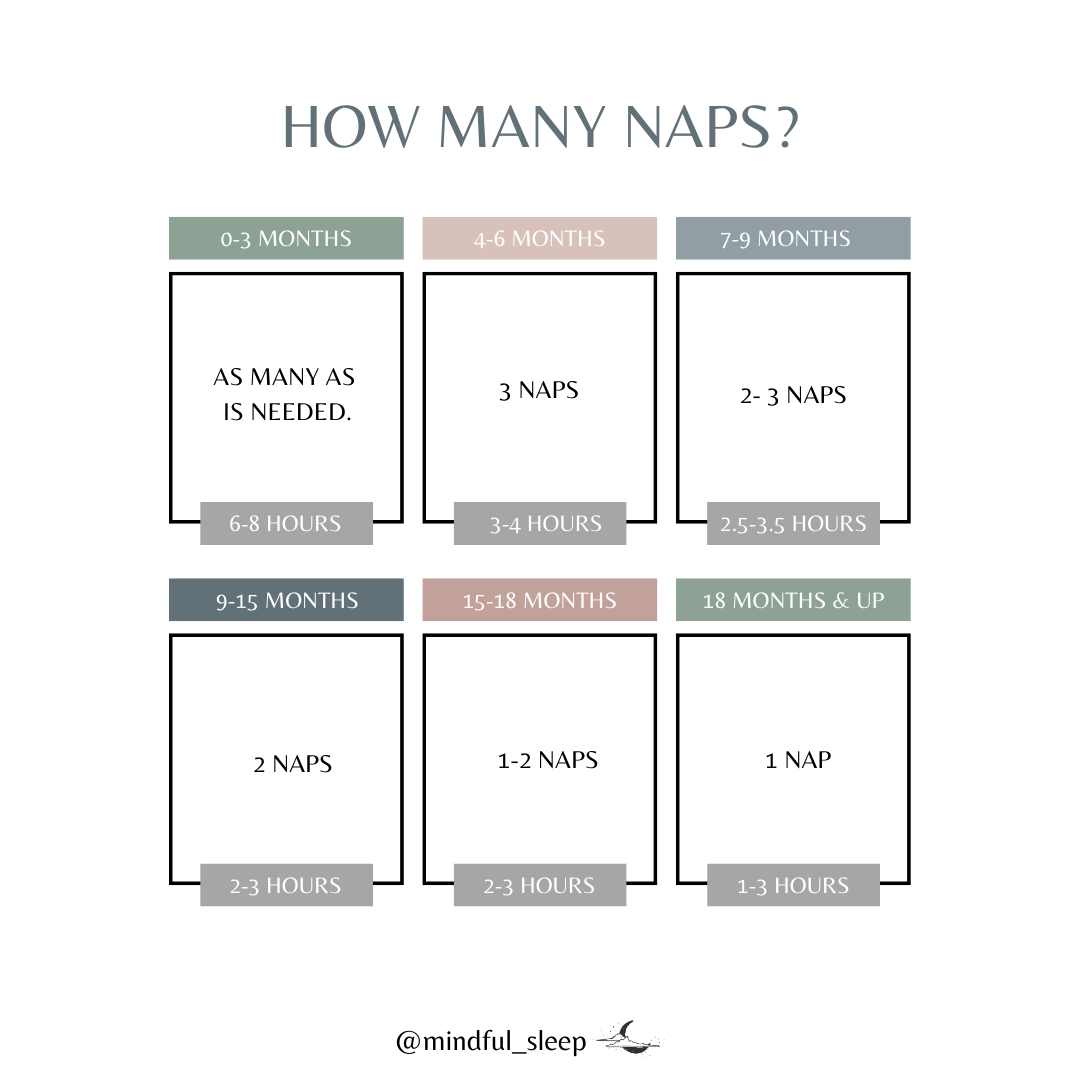How to Solve Your Baby’s Split Nights
Has your typically sound sleeper started having a particularly long wake up during the middle of the night or even just a few hours after going to bed? When I say long, I’m talking hours.
If your answer is yes, then your child may be experiencing split nights! Let’s discuss what a split night actually is and some easy ways to solve them!
Split nights are easy to identify because they aren’t like other night wakings! They usually last 2-3 hours and your baby is relatively calm during this time. They don’t appear to be tired, and may seem more interested in playing or rolling around!
Split nights can be a result of an imbalance in daytime sleep (ie: too much daytime sleep) OR baby is not building enough sleep pressure before bedtime.
Here are your split night solutions
Fix the naps.
Does your baby nap maybe a little TOO well? If your baby is taking really long naps during they day, then they may actually be getting too much daytime sleep. This can lead to a disruption in their nighttime sleep. Check out this graphic to see an average of how many naps and how much daytime sleep your baby needs.
Solution: Wake your little one up earlier! This will help to ensure the nap doesn’t push subsequent naps or bedtime too late.
What if your baby is a cat napper and you have to do an early bedtime? In theory, an early bedtime is great. But in cases like this, it can backfire. How? You put baby down at 6pm and they go to sleep just fine, but then they wake up at 4:00 or 5:00 am because they’ve gotten a nice 10-11 hours of sleep!
Solution: Practice extending your child’s daytime naps in order to help them get in their needed daytime sleep. There are a few ways you can do this.
If your baby is four months or younger, try extending naps by offering a pacifier or contact nap (wear baby or hold baby).
If your baby is 4 months or older, you can practice crib hour. This is where you do not get your baby out of their crib until it has been one hour from the time they fell asleep. If they fell asleep at 9:00am, you would wait until 10:00am to get them out, even if they wake up at say, 9:45am. You would then start your baby’s wake window from the time you get them out of the crib (10:00am), not the time they woke up (9:45am). If your little one was previously sleep trained, you would use your sleep training method for the crib hour. I recommend starting out by practicing this for the first nap of the day only, especially for younger babies.
Address bedtime and wake time.
Yes, the early bedtime can be a great thing! BUT if it’s too early, it leads to these spilt nights because baby isn’t able to build enough sleep pressure before bedtime.
What is sleep pressure? Also know as homeostatic sleep drive, is the pressure that builds up in your child's body as they’re awake time increases. The longer they are awake, the more sleep pressure that builds up. If your baby is not awake long enough, they will not have enough sleep pressure to easily fall asleep and stay asleep.
Solution: Start out by pushing your child’s bedtime 15 minutes later AND waking them 15 minutes earlier in the morning. Do this for a few days and see if you notice any change to the long night waking.
Wake your baby in the morning!
I get it, it can be sooo tempting to let your baby sleep in, especially if they spent a couple hours awake during the night. However, having irregular wake times can ends up causing the whole day to shift and throw your baby’s circadian rhythm off!
Solution: Establish a set wake time for the morning, such as 7:00am. Biologically, most babies do best with a wake time between 6:00-7:00 am (however, this doesn’t mean you can’t have a baby on a later schedule!). When you have a set start time to your little one’s day, it helps you to keep wake windows, nap times and bed time on track for the remainder of the day.
In conclusion…
Split nights are not fun, but they are fixable!
• Check to see if you need to make any adjustments to their naps, whether it be shortening them or helping your baby extend them.
• Address your little one’s bedtime and wake time, making sure they are building enough sleep pressure before going down for the night.
• Establish a set wake time for the morning to help keep your baby’s circadian rhythm on track.
Split nights can be an easy fix if there is only one or two tweaks that need to be made. However, this sleep struggle may be a little tougher to navigate if your baby has not yet become an independent sleeper.
If your baby is four months or older or if you feel like you have tried everything to eliminate split nights or other sleep struggles, then it may be time to sleep train!
You don’t have to wait until you reach your breaking point with the sleep deprivation (like myself and so many others have!). We can begin as soon as you are ready! Not quite sure yet? Let’s start with one of my free 30-minute calls to see if working together would be a good fit.
I am here to be your go-to person, to answer your questions and support you, making the sleep training process easier on the whole family!
Sleep easy,
Yasmin Johnston
Your Pediatric Sleep Consultant



